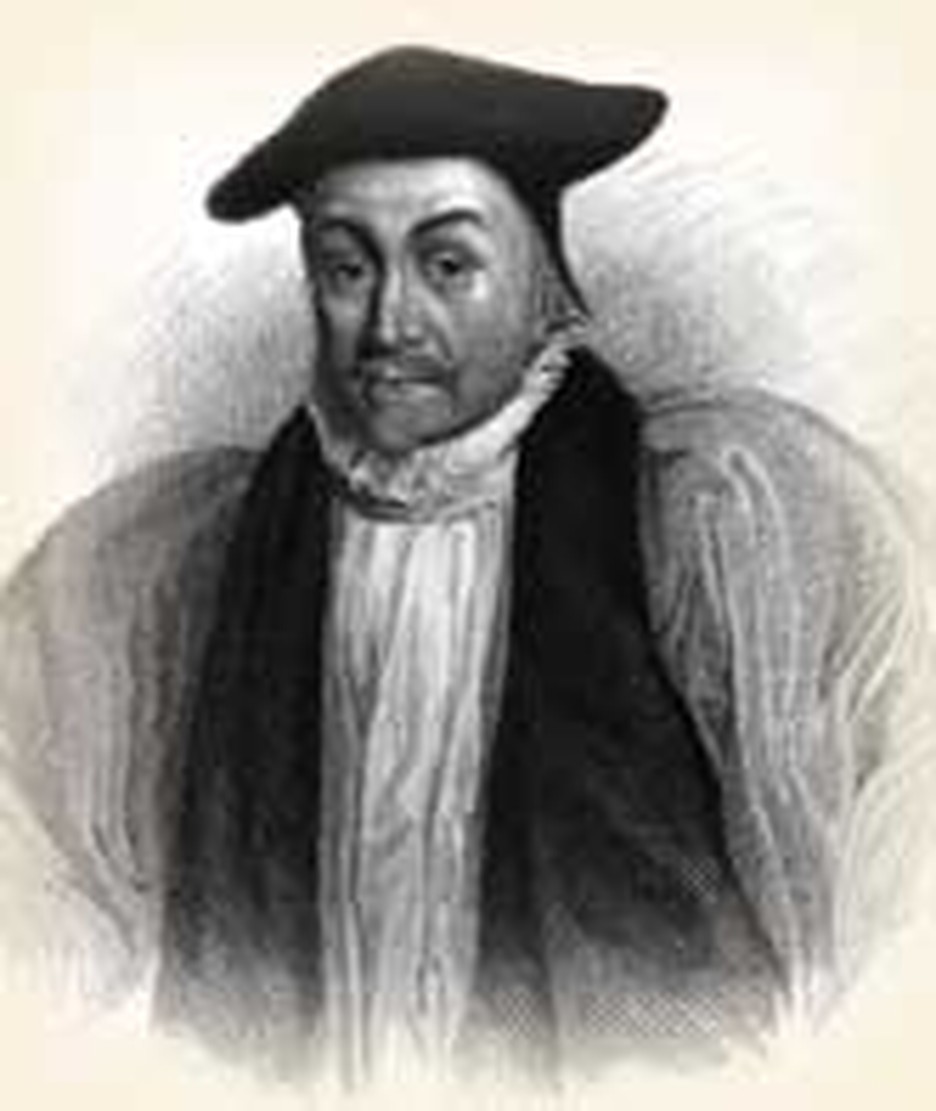
On this day, January 10, 1645, William Laud's head was chopped off. If you had to sum up the reason why you could say power went to his head.
Who was William Laud?
Laud was born in 1573, twenty-eight years after King Henry VIII broke from the Roman Catholic church because it would not give him a divorce. Except for a few years under Queen Mary, the established English church has been Protestant ever since.
Not everyone was comfortable in the Church of England. The Puritans thought it hadn't moved far enough away from the old Catholic ways, and wanted to purify it. Christians quarreled about where the altar should be and whether or not they should bow toward it. Some thought stained glass windows were idolatrous. While many found the prayer book inspiring, critics argued that no one should be made to pray out of a book. The government set the rules for worship, but of course, it couldn't please everyone and not all priests followed the rules. That is how things stood when William Laud came to power.
Laud was educated for the church. He earned a position as a tutor and then as a chaplain. Elected president of St. John's College, Oxford, he ran a peaceful school for eleven years. His success won him an appointment as a chaplain to the king and then as bishop of Gloucester. At Gloucester, he upset some of his congregation by moving the altar to the east as it would have been in a Catholic church. He did not explain to anyone why he did it. As far as he was concerned, he had the authority to make the move and that was enough.
Laud's Royal Influence
Laud was a friend of Prince Charles. When Charles I became king, he asked Laud to draw up a list of clergymen who were worthy of promotion. On Laud's list, each clergyman suspected of Puritanism was marked with a "P." It was a safe bet that no "P" would get a promotion because Charles did not like Puritans. Incidents like this caused people to say that Laud wanted to return the church to Catholicism. This was not true. In a debate with a Jesuit, he argued strongly for the Church of England.

Laud was a detail man. Charles trusted his work and liked Laud's theory that kings have divine right to rule and should be obeyed in everything. The king brought Laud into the Star Chamber (a powerful court of inquisition) and eventually made him Archbishop of Canterbury, the highest post in the Church of England.
Puritan Persecution
Laud was strict. Rules were rules and he meant to enforce them. He tried to force an identical church service on everyone, believing that the way to develop unity of spirit was to have unity in the form of worship. The Puritans resisted and Laud persecuted them. He joined in order that William Prynne's ears be cut off when Prynne wrote an attack on the theatre that reflected badly on the king and queen.
Laud supported the king against the Puritans in Parliament. Eventually, Parliament and king fought each other. Parliament accused Laud of treason. Laud almost won his case, because he had acted with strict legality. The House of Commons was able to convict him only by arguing that it could declare any crimes it pleased to be treason.
Laud's Final Words
When Laud was brought to the scaffold, he preached, taking as his text Hebrews 12:2, "Let us run with patience the race that is set before us." He forgave his enemies and asked their forgiveness. His last prayer was, "Lord, I am coming as fast as I can: I know I must pass through the shadow of death before I can come to Thee; but it is but umbra mortis, a mere shadow of death...Thou, by thy merits and passion, hath broken through the jaws of death." He prayed for peace in England. After a moment of silence, he added, "Lord receive my soul." He was seventy-two when the blade lopped off his head.
Bibliography:
- "Laud, Willam." Dictionary of National Biography. Edited by Leslie Stephen and Sidney Lee. London: Oxford University Press, 1921-1996.
- Hook, Walter Farquhar, 1798-1875. Lives of the Archbishops of Canterbury. London, R. Bentley, 1865-1884.
- Hutton, W. H. A Story of the English Church. London: Macmillan, 1903.
- McKilliam, Annie E. A Chronicle of the Archbishops of Canterbury. London: J. Clarke, 1913.
Last updated May, 2007.


